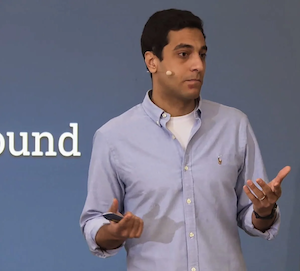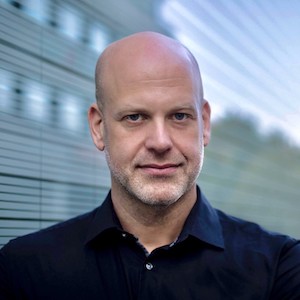open source community
See the following -
Building An Open Source Hardware Movement
Last Saturday’s celebration of this year’s Software Freedom Day in UP Diliman was a rewarding experience both for its organizers and the students and enthusiasts that braved the rain and floods to participate... Read More »
- Login to post comments
Diverse Open Source Uses Highlight Need For Precision In Cyber Resilience Act
 As the European Cyber Resilience Act (CRA) is entering into the final legislative phase, it still has some needs arising from framing by the Commission or Parliament that result in breakage no matter how issues within its scope are “fixed”. Here’s a short list to help the co-legislators understand the engagement from the Open Source community...OSI and the experts with whom they engage are not trying to get all of Open Source out of scope as maximalist lobbyists do for other aspects of technology. An exclusion from the regulation for Open Source software per se would open a significant loophole for openwashing. But the development of Open Source software in the open needs to be excluded from scope just as the development of software in private is. Our goal in engaging is just to prevent unintentional breakage while largely embracing the new regulation.
As the European Cyber Resilience Act (CRA) is entering into the final legislative phase, it still has some needs arising from framing by the Commission or Parliament that result in breakage no matter how issues within its scope are “fixed”. Here’s a short list to help the co-legislators understand the engagement from the Open Source community...OSI and the experts with whom they engage are not trying to get all of Open Source out of scope as maximalist lobbyists do for other aspects of technology. An exclusion from the regulation for Open Source software per se would open a significant loophole for openwashing. But the development of Open Source software in the open needs to be excluded from scope just as the development of software in private is. Our goal in engaging is just to prevent unintentional breakage while largely embracing the new regulation.
- Login to post comments
European Commissioner Outlines Open Source Priorities
 The Commissioner welcomed developments in open source throughout public administrations in Europe to seize the economic and innovative potential of open source. These include the Action Plan on Free Software and Digital Commons in France, the initiatives in Estonia, Spain and Italy, as well as the newly created Centre for Digital Sovereignty in Germany. According to the Commissioner, several factors are needed to use the potential of open source and to reach the political goals of the EU: nurturing a tech startup culture, utilising the digital single market for lean and sustainable tech industry, overcoming planned obsolescence, pooling the efforts of the EU’s Member States for technological independence and improving cybersecurity.
The Commissioner welcomed developments in open source throughout public administrations in Europe to seize the economic and innovative potential of open source. These include the Action Plan on Free Software and Digital Commons in France, the initiatives in Estonia, Spain and Italy, as well as the newly created Centre for Digital Sovereignty in Germany. According to the Commissioner, several factors are needed to use the potential of open source and to reach the political goals of the EU: nurturing a tech startup culture, utilising the digital single market for lean and sustainable tech industry, overcoming planned obsolescence, pooling the efforts of the EU’s Member States for technological independence and improving cybersecurity.
- Login to post comments
How Data And Communities Are Changing Health Care
The open source model is tremendously powerful, and it’s something VA understood when it created VistA. The next chapter will see the user-driven super community, OSEHRA, powered by data and the OSS ethos, helping to transform how VA delivers care.
- Login to post comments
Open Source Under The Lens Of An Intellectual Property Lawyer
Have you ever wondered what, from a business perspective, the world of sharing, free, and open source looks like to a lawyer? Challenging! Chaotic? Creative... Read More »
- Login to post comments
'Open Source' Is Not 'Free Software'
 In the open source universe, using terms such as FLOSS (Free/Libre and Open Source Software) is common and represents a casual conflation of the terms open source and free software, which are often used interchangeably. I would be remiss if I didn't also admit that I have been guilty of same. I won't be doing that anymore—or at least I'll try not to—for a simple reason: Using the terms interchangeably is dangerous to the goals of free software and open media advocates (read "anti-DRM"). To continue this practice is to undermine beliefs that are fundamental to free software and associated movement...
In the open source universe, using terms such as FLOSS (Free/Libre and Open Source Software) is common and represents a casual conflation of the terms open source and free software, which are often used interchangeably. I would be remiss if I didn't also admit that I have been guilty of same. I won't be doing that anymore—or at least I'll try not to—for a simple reason: Using the terms interchangeably is dangerous to the goals of free software and open media advocates (read "anti-DRM"). To continue this practice is to undermine beliefs that are fundamental to free software and associated movement...
- Login to post comments
10 Disappointments For Open Source In 2013
[...] Here are 10 of the most disappointing developments for this past year. Some of them were game changers, others were simply thorns in the side of the open source community, and a few may even have spurned a change for the positive within the community. Let's take a look at the cruft that dared to mar the sheen of an otherwise outstanding year. Read More »
- Login to post comments
29th VistA Community Meeting: Details of Upcoming Technical Conference
 The upcoming 29th VistA Community Meeting (VCM), to take place June 2-4 at George Mason University in Fairfax, Virginia, is shaping up as a breakthrough gathering of technical experts on VistA and community members. The conference is bringing senior leaders from several US Federal Government agencies, including the US Department of Veterans Affairs (VA) and the Indian Health Service (IHS) together with technical leaders of the VistA community to collaborate on improving the VistA and RPMS EHRs.
The upcoming 29th VistA Community Meeting (VCM), to take place June 2-4 at George Mason University in Fairfax, Virginia, is shaping up as a breakthrough gathering of technical experts on VistA and community members. The conference is bringing senior leaders from several US Federal Government agencies, including the US Department of Veterans Affairs (VA) and the Indian Health Service (IHS) together with technical leaders of the VistA community to collaborate on improving the VistA and RPMS EHRs.
- Login to post comments
3 Key Open Source Challenges in Developing Countries
 When I go back home and talk to people in the tech industry, or any other industry for that matter, about what I do and the topics I'm involved in daily, I'm usually met with bemusement at the idea of an Open Source Programs Office (OSPO). The concept of a company contributing to an open source project without obvious immediate financial benefit can be culturally strange to understand or explain. As someone born and raised in a country that has been trying to develop for quite some time, I understand and relate to that. There was a point in time when my only understanding of open source was that it was software that I could use without paying and without needing to wait for a specific issue or additional feature to be released. I could just do whatever I needed myself, locally. Open source faces many struggles in developing countries that make how it's perceived and its associations inaccurate and out of touch. I will discuss these struggles in this article.
When I go back home and talk to people in the tech industry, or any other industry for that matter, about what I do and the topics I'm involved in daily, I'm usually met with bemusement at the idea of an Open Source Programs Office (OSPO). The concept of a company contributing to an open source project without obvious immediate financial benefit can be culturally strange to understand or explain. As someone born and raised in a country that has been trying to develop for quite some time, I understand and relate to that. There was a point in time when my only understanding of open source was that it was software that I could use without paying and without needing to wait for a specific issue or additional feature to be released. I could just do whatever I needed myself, locally. Open source faces many struggles in developing countries that make how it's perceived and its associations inaccurate and out of touch. I will discuss these struggles in this article.
- Login to post comments
3 Metrics To Measure Your Open Source Community Health
 Community building is table stakes in the success of any open source project. Even outside of open source, community is considered a competitive advantage for businesses in many industries—from retail, to gaming, to fitness. (For a deeper dive, see "When community becomes your competitive advantage" in the Harvard Business Review.) However, open source community building—especially offline activities—is notoriously hard to measure, track, and analyze. While we've all been to our fair share of meetups, conferences, and "summits" (and probably hosted a few of them ourselves), were they worth it? Did the community meaningfully grow? Was printing all those stickers and swags worth the money? Did we collect and track the right numbers to measure progress? To develop a better framework for measuring community, we can look to a different industry for guidance and fresh ideas: political campaigns.
Community building is table stakes in the success of any open source project. Even outside of open source, community is considered a competitive advantage for businesses in many industries—from retail, to gaming, to fitness. (For a deeper dive, see "When community becomes your competitive advantage" in the Harvard Business Review.) However, open source community building—especially offline activities—is notoriously hard to measure, track, and analyze. While we've all been to our fair share of meetups, conferences, and "summits" (and probably hosted a few of them ourselves), were they worth it? Did the community meaningfully grow? Was printing all those stickers and swags worth the money? Did we collect and track the right numbers to measure progress? To develop a better framework for measuring community, we can look to a different industry for guidance and fresh ideas: political campaigns.
- Login to post comments
5 Open Source Projects That Are Improving the World
One of the strengths of the open source community has been its ability to bring concentrated effort to bear on big problems. When tragedy strikes, or a pressing need arises, there are groups of people who gather together to attempt to solve the problems as a community. You may not have heard of these five open source projects, but they are attacking some of the world's biggest problems and making a true impact in people's lives... Read More »
- Login to post comments
6 Reasons People with Disabilities Should Use Linux
 Often, when issues of accessibility and assistive technology are brought up among people with disabilities, the topics center around the usual issues: How can I afford this device? Is it available for me? Will it meet my needs? How will I receive support? Open source solutions, including any Linux-based operating system, are rarely, if ever, considered. The problem isn't with the solution; instead, it is a result of lack of information and awareness of FOSS and GNU/Linux in the disability community, and even among people in general. Here are six solid reasons people with disabilities should consider using Linux...
Often, when issues of accessibility and assistive technology are brought up among people with disabilities, the topics center around the usual issues: How can I afford this device? Is it available for me? Will it meet my needs? How will I receive support? Open source solutions, including any Linux-based operating system, are rarely, if ever, considered. The problem isn't with the solution; instead, it is a result of lack of information and awareness of FOSS and GNU/Linux in the disability community, and even among people in general. Here are six solid reasons people with disabilities should consider using Linux...
- Login to post comments
6 remarkable features of the new United Nations open source initiative
 The United Nations wants to make technology, software, and intellectual property available to everyone, including developing countries. Open source and free software are great tools to achieve this goal since open source is all about empowering people and global collaboration while protecting the personal data and privacy of users. So, the United Nations and the open source community share the same values. This new open source strategy and policy is developed by the United Nations Technology Innovation Labs (UNTIL). Last month, we had our first in-person meeting in Helsinki in the UNTIL offices. I find this initiative remarkable for several reasons:
The United Nations wants to make technology, software, and intellectual property available to everyone, including developing countries. Open source and free software are great tools to achieve this goal since open source is all about empowering people and global collaboration while protecting the personal data and privacy of users. So, the United Nations and the open source community share the same values. This new open source strategy and policy is developed by the United Nations Technology Innovation Labs (UNTIL). Last month, we had our first in-person meeting in Helsinki in the UNTIL offices. I find this initiative remarkable for several reasons:
- Login to post comments
7 Ways to Discuss Legal Matters with an Open Community
 Having watched a fair number of people attempt to engage both the Open Source Initiative's licensing evaluation community and the Apache Software Foundation's legal affairs committee, I'd like to offer some hints and tips for succeeding when it's your turn to conduct a legal discussion with an open community. First and foremost, make sure the person conducting the conversation is both qualified and empowered. Don't send proxies; they simply frustrate the community, who quickly work out that your representative is always playing the second-hand car salesman and going to the back room to ask for a deal...
Having watched a fair number of people attempt to engage both the Open Source Initiative's licensing evaluation community and the Apache Software Foundation's legal affairs committee, I'd like to offer some hints and tips for succeeding when it's your turn to conduct a legal discussion with an open community. First and foremost, make sure the person conducting the conversation is both qualified and empowered. Don't send proxies; they simply frustrate the community, who quickly work out that your representative is always playing the second-hand car salesman and going to the back room to ask for a deal...
- Login to post comments
7 Ways Your Company Can Support Open Source
Does your company benefit from open source projects? Then you should support them -- and not just by donating money Read More »
- Login to post comments